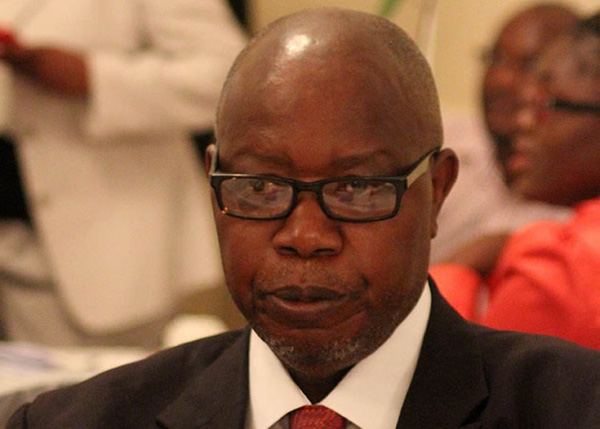
BY GEOFFREY NYAROTA
The National Journalism and Media Awards (NJAMA) is the highlight on the calendar of Zimbabwe’s media fraternity and sorority.
On that day, the highest achievers or best performers of the year are recognised and rewarded for their outstanding effort in the print, the electronic or the digital media.
On Thursday, the best journalists of 2021 were acknowledged in a lavish ceremony held rather fittingly in the luxurious ambience of Harare’s Monomatapa Hotel.
A total of 18 awards were presented to deserving journalists chosen from a total of 287 entrants.
The team of judges appointed by the Zimbabwe Union of Journalists (ZUJ) for purposes of adjudicating the awards were Ruby Magosvongwe, who is the chairperson of the Zimbabwe Media Commission, Alexander Rusero, a seasoned media and journalism lecturer at Africa University in Mutare and myself, an award-winning investigative journalist and newspaper editor.
Before her current appointment, Magosvongwe was the chairperson of the Department of English and Media Studies in the Faculty of Arts at the University of Zimbabwe, while Rusero was a long-standing lecturer in the Department of Journalism and Media at the Harare Polytechnic.
As for me, I have served as editor of four newspapers including two dailies, The Chronicle and The Daily News, of which I am the founding editor-in-chief.
- Chamisa under fire over US$120K donation
- Mavhunga puts DeMbare into Chibuku quarterfinals
- Pension funds bet on Cabora Bassa oilfields
- Councils defy govt fire tender directive
Keep Reading
I am also the winner of nine international media awards.
ZUJ quarantined the team of adjudicators at a venue far away from Harare for the purpose of sifting through 287 entries.
Competition was tough among participants motivated by a clear determination to win a prize from a list ranging from a weekend for two at an undisclosed hotel in Manicaland province to US$2 000 for the winner in two categories generously sponsored by the United Nations Population Fund (UNFPA).
In fact, to the amazement of the assembly of journalists, the UNFPA, represented at the function by its assistant Harare representative, Abigail Msemburi, sponsored the runners-up in those two categories to the astounding tune of US$1 200, respectively.
Recommendations
The judges compiled a list of recommendations on the basis of their various observations on the conduct of the 2021 journalism awards.
They recommended in the first place that the various categories be more clearly defined for the benefit of the participants, sponsors, the judges, as well as other stakeholders.
They recommended that the categories be more streamlined to achieve a less cumbersome line-up, especially after incorporation of additional categories which they proposed.
It was one of the recommendations made by the judges that ZUJ retains total control over the definition of the categories to minimise undue influence from sponsors.
Given the vast disparity in the quantum of the prize money, the judges said they felt strongly that there should be uniformity in prize money across the categories.
Otherwise ZUJ runs the very real risk of contestants flooding with entries the lucrative categories such as those sponsored by UNFPA, while giving a wide berth to the less-attractive ones in terms of prize money.
Prize money ranged from US$200 to the very generous US$2 000 paid by UNFPA in one category.
The judges drew up and proposed to ZUJ a list of categories to be considered for incorporation in an enlarged line-up.
The additional categories recommended include the all-important Journalist of the Year and Investigative Journalist of the Year awards.
Also recommended by the judges is the Photo-journalist of the Year Award.
Given that Zimbabwe is an agricultural country, dubbed the Bread Basket of the African Continent, the judges suggested that an Agricultural Reporter of the Year Award be also included.
The categories proposed were: Political Reporter, Municipal Reporter, Health Reporter, Crime and Courts Reporter as well as Motoring correspondent.
The judges also recommended that ZUJ and the media fraternity and sorority should acknowledge the role and contribution made by Zimbabwe’s cartoonists in the form of editorial cartoons and cartoon strips.
They said it was unfair that foreign cartoon strips such as Andy Capp and Hagar the Horrible were given preference, while local cartoonists such as Tony Namate, Boyd Maliki, Watson Mukutirwa and Noah Pomo virtually languished in poverty.
Their work was of a fine quality and was more relevant to Zimbabwe.
The judges pointed out that there was need for concerted effort on the part of ZUJ to canvass for support from commerce and industry to support the additional categories.
Finally, the adjudicators singled out for praise the commendable effort made by Zimbabwe Newspapers outlets, Kwayedza, Chronicle and Zimbabwe Newspapers Television Network (ZTN).
They submitted entries in virtually every category. “
“Meanwhile, the judges found the total absence of Associated Newspapers of Zimbabwe (ANZ) somewhat disconcerting,” the report said, “given that the Daily News is a key player on Zimbabwe’s media landscape.”










